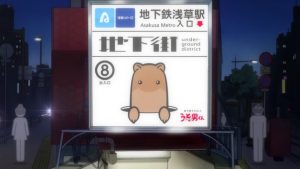 We’re basically 2/3 of the way through Sarazanmai at this point, so I think it’s fair to come to some general conclusions about what sort of show it is. And to my eye., while it’s unmistakably an Ikuhara series it also has quite a different feel to it than most of his more recent work. Obviously Ikuni is never shy about tackling dark themes and Sarazanmai isn’t a total exception to that by any means. But for whatever reason the tone of this one feels markedly more upbeat than the standard Ikuhara series, and certainly much more than Mawaru Penguin Drum (which I consider to be his masterpiece, flawed though it is).
We’re basically 2/3 of the way through Sarazanmai at this point, so I think it’s fair to come to some general conclusions about what sort of show it is. And to my eye., while it’s unmistakably an Ikuhara series it also has quite a different feel to it than most of his more recent work. Obviously Ikuni is never shy about tackling dark themes and Sarazanmai isn’t a total exception to that by any means. But for whatever reason the tone of this one feels markedly more upbeat than the standard Ikuhara series, and certainly much more than Mawaru Penguin Drum (which I consider to be his masterpiece, flawed though it is).
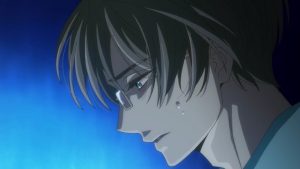 I think it’s both fair and useful to compare these two shows, as they’re basically the benchmarks for modern Ikuni (Yuri Kuma Arashi was such a colossal mess than it really feels like an outlier). Sarazanmai isn’t trying to be another MPD, that’s absolutely true. But to my outsider’s perspective it seems like Sarazanmai is the product of a generally more contended creator. MPD was often brilliant (and almost as often adrift), and it strikes you as the work of a somewhat pessimistic and disaffected writer. Sarazanmai just seems like somebody having fun. Its best moments have certainly not matched the dark profundity of MPD, but it’s a much easier show to watch. This is an Ikuni we haven’t seen much of, and I confess I rather like it.
I think it’s both fair and useful to compare these two shows, as they’re basically the benchmarks for modern Ikuni (Yuri Kuma Arashi was such a colossal mess than it really feels like an outlier). Sarazanmai isn’t trying to be another MPD, that’s absolutely true. But to my outsider’s perspective it seems like Sarazanmai is the product of a generally more contended creator. MPD was often brilliant (and almost as often adrift), and it strikes you as the work of a somewhat pessimistic and disaffected writer. Sarazanmai just seems like somebody having fun. Its best moments have certainly not matched the dark profundity of MPD, but it’s a much easier show to watch. This is an Ikuni we haven’t seen much of, and I confess I rather like it.
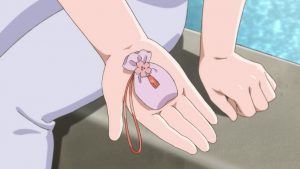 That’s not to deny that things seem to happen a little too quickly and easily sometimes in Sarazanmai. After last week’s events Kazuki is now totally happy-go-lucky and smiling, back to loving soccer and seemingly pretty much at ease with everything in a sort of genki-zen way (though if he’s confronted the notion that his best friend wants to be his boyfriend – of feels he needs to – there’s no sign of it). Indeed, to say the atmosphere with the boys in general was by far its most upbeat is an understatement. Even Toi isn’t immune, allowing Kazuki to draw him into kicking the ball around (he’s good at it, as it turns out) and even agreeing to join the soccer club. But that’s trouble in paradise…
That’s not to deny that things seem to happen a little too quickly and easily sometimes in Sarazanmai. After last week’s events Kazuki is now totally happy-go-lucky and smiling, back to loving soccer and seemingly pretty much at ease with everything in a sort of genki-zen way (though if he’s confronted the notion that his best friend wants to be his boyfriend – of feels he needs to – there’s no sign of it). Indeed, to say the atmosphere with the boys in general was by far its most upbeat is an understatement. Even Toi isn’t immune, allowing Kazuki to draw him into kicking the ball around (he’s good at it, as it turns out) and even agreeing to join the soccer club. But that’s trouble in paradise…
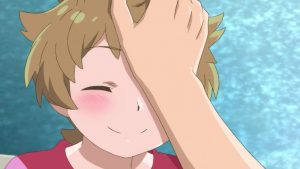 Balls are very much the (cheeky) theme Ikuhara obsesses over this time, with the zombie of the week being an “M” who wants his lover to kick him like a soccer ball. This raises a question that I’ve noted before – just what exactly is Ikuhara trying to say with these “criminals” who keep getting turned into zombies? Is he OK with people being killed for comic effect and plot advancement for no reason being perverted in some way? It’s hard to imagine he of all people would consider that to be a capital offense, yet he’s offered no indication that he’s troubled by this or thinks we should be. I rather hope he addresses this question before Sarazanmai ends, because it’s a pretty big elephant in the room.
Balls are very much the (cheeky) theme Ikuhara obsesses over this time, with the zombie of the week being an “M” who wants his lover to kick him like a soccer ball. This raises a question that I’ve noted before – just what exactly is Ikuhara trying to say with these “criminals” who keep getting turned into zombies? Is he OK with people being killed for comic effect and plot advancement for no reason being perverted in some way? It’s hard to imagine he of all people would consider that to be a capital offense, yet he’s offered no indication that he’s troubled by this or thinks we should be. I rather hope he addresses this question before Sarazanmai ends, because it’s a pretty big elephant in the room.
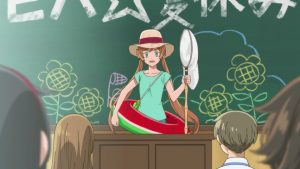 The matter of Mabu and the Otter Empire is pretty well settled here, on much the lines it seemed it might be. The Otters seem to be the thematic opposite of the kappa in every sense – technology (and pun)-driven, calculated, modernist. That saves Mabu’s life, but Reo has clearly never been at peace with his partner (I assume in more than one sense) being a human-machine hybrid – though whether his contention that Mabu is no longer the same person is accurate I have serious doubts.
The matter of Mabu and the Otter Empire is pretty well settled here, on much the lines it seemed it might be. The Otters seem to be the thematic opposite of the kappa in every sense – technology (and pun)-driven, calculated, modernist. That saves Mabu’s life, but Reo has clearly never been at peace with his partner (I assume in more than one sense) being a human-machine hybrid – though whether his contention that Mabu is no longer the same person is accurate I have serious doubts.
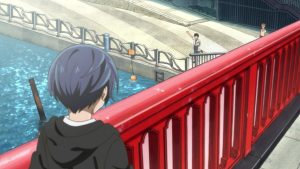 Indeed, this is very much a routine ep in many senses – full-length recycled animation sequences, confirmation of suspicions rather than new revelations. The one wildcard is Enta, who turns out to be culprit who’s trashing the boys’ riverside play area with garbage and paint over and over. The reason? He doesn’t especially want to share Kazuki with Toi. Ans after Toi gets a call from his brother which causes him to say he needs to leave town and Kazuki offers him all the silver dishes to help, Enta steals them. I guess the motivation sort of makes sense, but honestly this is a bit of an odd development since Enta should certainly know that as long as he’s fraternizing with Keppi, such secrets are always going to be revealed.
Indeed, this is very much a routine ep in many senses – full-length recycled animation sequences, confirmation of suspicions rather than new revelations. The one wildcard is Enta, who turns out to be culprit who’s trashing the boys’ riverside play area with garbage and paint over and over. The reason? He doesn’t especially want to share Kazuki with Toi. Ans after Toi gets a call from his brother which causes him to say he needs to leave town and Kazuki offers him all the silver dishes to help, Enta steals them. I guess the motivation sort of makes sense, but honestly this is a bit of an odd development since Enta should certainly know that as long as he’s fraternizing with Keppi, such secrets are always going to be revealed.


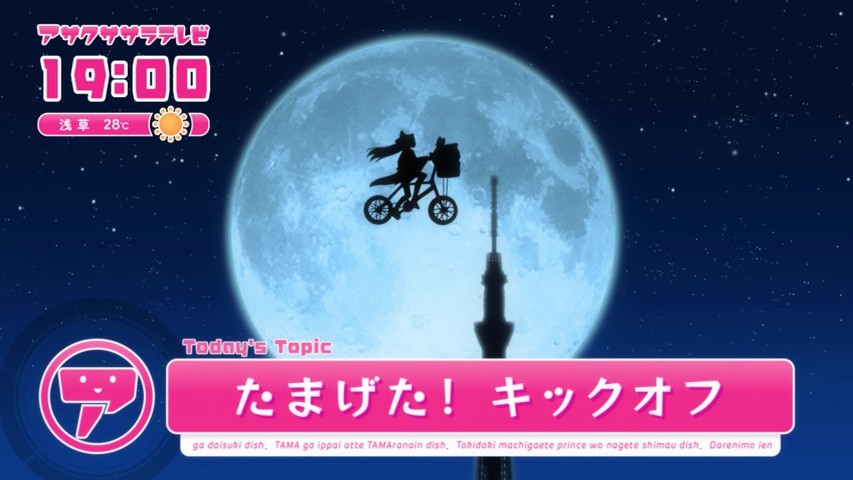
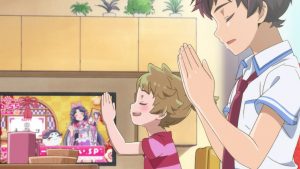
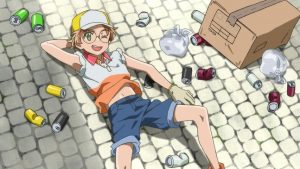
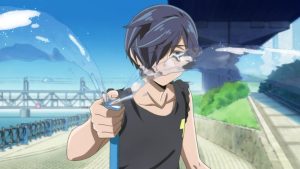
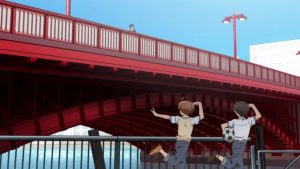
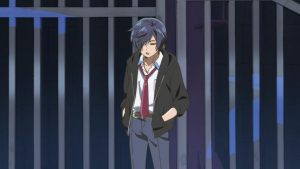
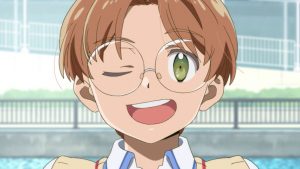
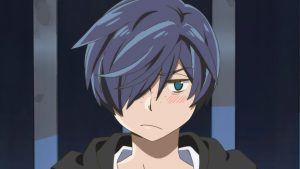
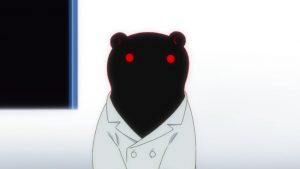
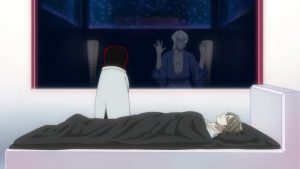
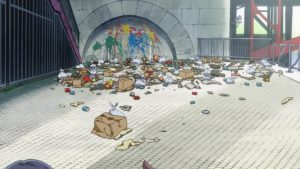
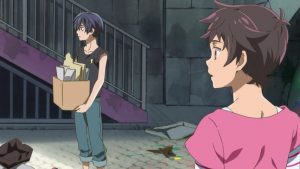
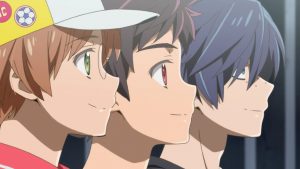
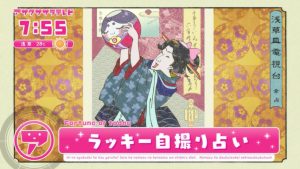
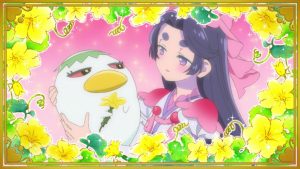
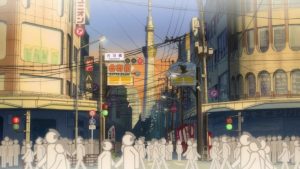
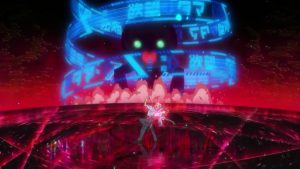
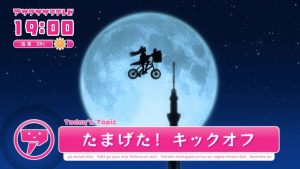
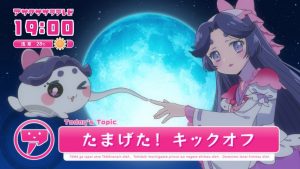
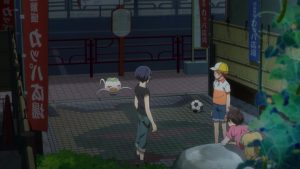
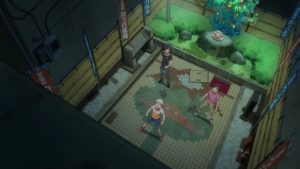
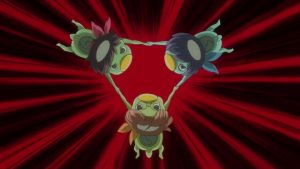
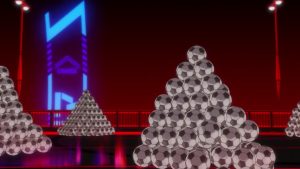
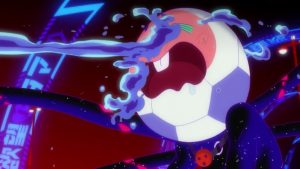
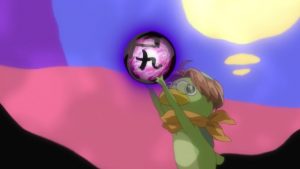
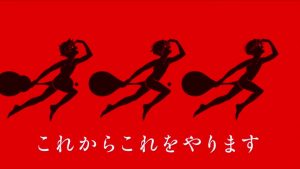
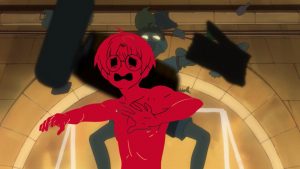
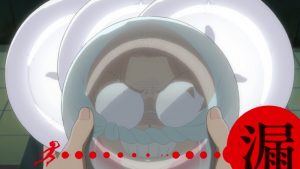
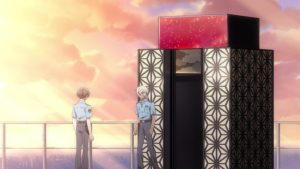
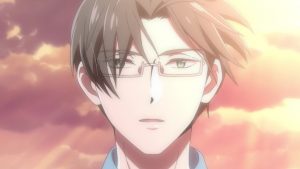
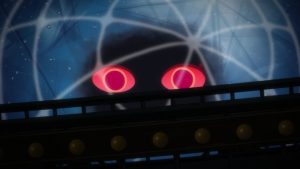

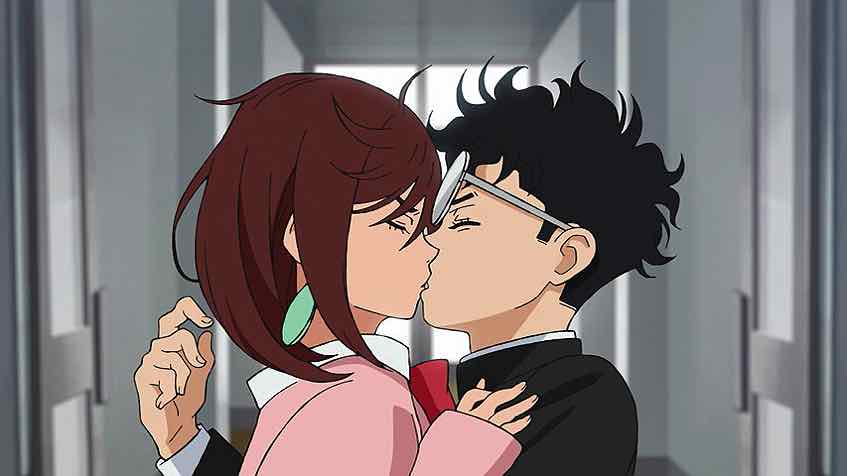
TheYepMan
May 25, 2019 at 11:53 amI wouldn’t worry too much about Ikuhara being a massive kinkshamer, considering the framing used: the Otter Empire is pretty much this show’s Kiga Group, and while Keppi’s shirikodama consumption erases the person they used to be from the collective consciousness, those people are already dead and gone anyway (after all, the police is investigating their murders – something Mabu and Leo are responsible for).
I do think Enta… should’ve thought of something else. Like you said, the secret was gonna come out in the open anyway, and even though none of the damage he’s doing is irreversible, he certainly could cost Toi his stay in the city…
…however, I think this development is exactly what this show needed. Kazuki’s development has made him self-conscious and committed to change his nasty habits, to a point that makes him look… a bit too “fixed” to be realistic, but I blame this show being 1 cour for that. However, I was wondering where was Enta going to go, and I’m glad that he’s getting his own arc.
As for Toi… well, his issue with his brother wasn’t gonna go away any time soon, and I think the show already told us that the wishes made to the dishes aren’t exactly viable – Enta wasted the wish of the golden dish in “a year’s worth of kappamaki” and instead of getting like, a pile of easily consumable kappamaki he got a giant roll in a pretty hard to eat format. (I know it’s a dick joke, but still.) What Toi needs to do is exactly what Kazuki did – screw wishes, face the problem head-on.
Scampi
May 26, 2019 at 5:19 amAgree with what TheYepMan said about the kinky people being victims of the otters rather than disposable enemies. I had fun rewatching the episode, and finding all the hints on Enta being the one behind the trashing (slept in) and stealing (angry at Keppi for turning him). It may just be me but the shot of him crushing the croquette bag while smiling at Toi was kinda unnerving even on first watch. He did a good job putting up a smiling face.
Enta strikes me as the kind of person with little self restraint. The episode was indeed too fast paced but it’s quite possible for Enta to do stupid things on random urges, not everyone would go for indirect kiss with crush’s flute or kiss said crush in his sleep. I hate people who grate on my nerves long term but I always crush the bad thoughts as soon as they pop up, but not all people can hold it in, consequences be damned. The current culture of instant gratification and pressure may have lessened people’s self restraint so such things are more common. In China there are incessant occurrences of men knifing women over unrequited love and in US there are stalkers burning cars just because stalking mentality. Enta is not that far gone or malicious but he’s that type alright.
No one
May 26, 2019 at 7:46 amUtena is indesputably Ikuhara’s benchmark creation. It really is a striking omission everytime you psycho analyze him or his work. It’s a good idea to expand your research when you consistently regard directors like this, even if it means wading through their less favourable work.
TheYepMan
May 26, 2019 at 11:54 amI think Utena (the show) doesn’t land as “benchmark” so easily because it’s Ikuhara as main author, but at its most restrained (he was restrained more in Sailor Moon, but that’s understandable as it was not his work to mess around with). Utena to me is more of an entry point to Ikuhara for how accessible it is in comparison to his other work…
…until you reach the movie. The Utena movie is where you kinda see Ikuhara a bit more comfortable with his creative freedom, and this extends to Penguindrum. The Utena movie is pretty much only for people who have already consumed either the Utena show or the Utena manga, so I agree with Enzo in putting Penguindrum as the benchmark – it’s the first standalone work where you can see Ikuhara in full freak mode.
TheYepMan
May 26, 2019 at 11:55 amAlso… What part of Utena is “less favourable”? It’s a damn classic and it holds up to this day (at least I think it does.)
No one
May 27, 2019 at 4:30 amI agree with it being a damn classic. But it actually serves as his breakaway series where he got to inject a genre with his thematic DNA. The series is by far not his loosest work (a homage 70s shoujo elites) but it’s a clear creative reference point for many of the ideas and idiosyncrasies he explores in his later work – Yuri Kuma, Penguindrum, etc
Color2413
May 29, 2019 at 1:21 pmThe original anime was one of my “gateways” back in day but I don’t remember much about it now, having not seen it in almost 20 years.To be honest I am finding the new version something of a slog, to the point where I almost certainly would have dropped it already if it were not a “heritage” property. As the years roll by, I am less and less sympathetic to female protagonists who behave like simpering doormats and talk like Betty Boop on helium. Women in anime have gotten far stronger since Fruits Basket’s heyday.
Guardian Enzo
May 29, 2019 at 1:37 pmWell, I’ve been saying from the beginning that the sexual politics of Furuba were pretty old-fashioned. Still, a bit surprised at the sheer level of vitriol I’ve been seeing directed at Tohru – I never found her to be a simpering doormat myself. No doubt Hochan’s fierce portrayal helped a lot, bu even in the manga (or the 2019) those are stronger words than I’d use.
BTW – I assume you attached this to the wrong post?